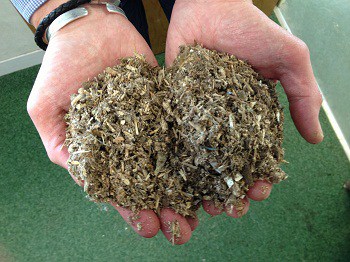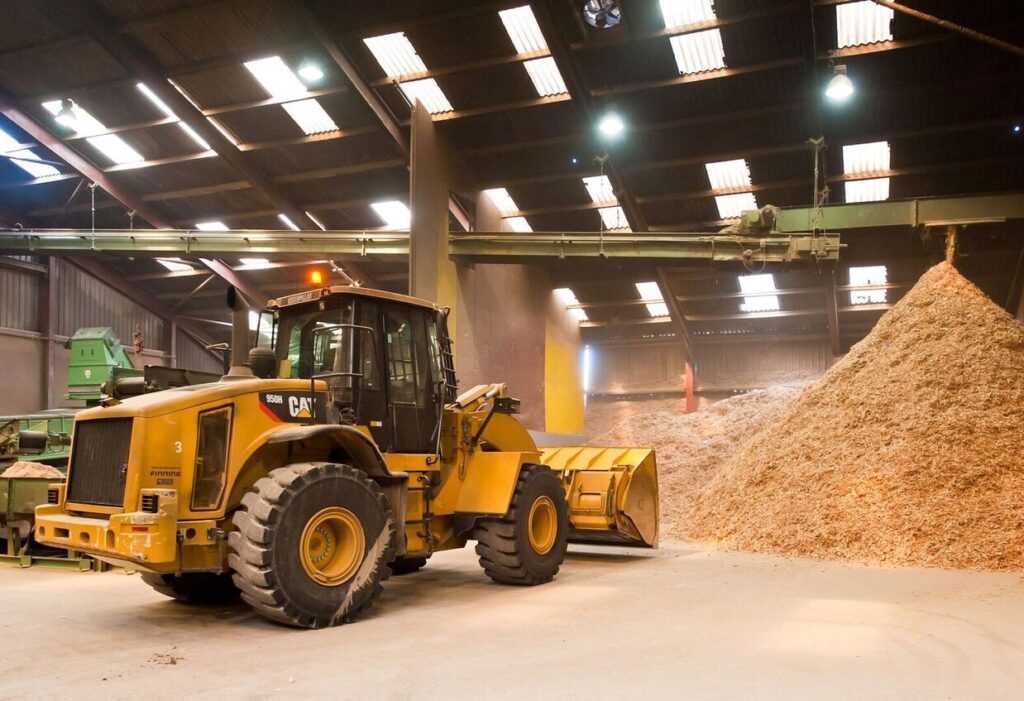Composters must ensure that any waste wood they feed into their composting plants is clean and untreated, according to new guidance from the Environment Agency.
Following concerns that dirty wood including screened wood fines is being taken to composting sites after shredding and later spread to land, the Agency issued a document last week (June 6) to clarify its position.

The document explains that compost produced using dirty wood does not meet the PAS 100 standard for quality compost and compost quality protocol (CQP) and would be classified as a waste, meaning that there would be difficulties in finding suitable uses for the material.
It is important therefore that compost facilities satisfy themselves that any waste wood that they feed into their composting process is clean and untreated, the guidance says.
This applies to shred waste wood and wood fines as well as unshredded waste wood. Alternatively, compost facilities may need to implement a robust sorting and segregation activity for unshredded wood waste to ensure grade A quality for input into the PAS100 and CQP composting process.
In principle, the Agency says that treated waste wood grades B and C can be mixed with other wastes to be biologically treated to produce a compost like output (CLO) or separated organic material (SOM) provided sites have the relevant waste permit. This material can then be spread on non-agricultural land, but several conditions must be met and a special bespoke permit and permission is required, making this difficult.
Welcome
“We want to ensure officers in the field act in a consistent manner in respect to this”
Jeremy Jacobs, REA
The guidance has been welcomed by organics recyclers, who have been concerned over inconsistent enforcement of the existing rules by Agency officers across the country. They said they hoped it would create a more level playing field.
Charlie Trousdell, from recycling firm Countrystyle, said: This makes sure that people are fully aware that if they have been taking in dirty wood they need to stop.
We want a level playing field. This raises awareness among operators, especially small producers who often do not know.”
He continued: This will tighten things up and perhaps stimulate the energy market and more innovative uses for lower grade waste wood. The EA are looking to industry and academia for solutions.
Mr Trousdell explained that the problem had recently come to the fore due to the increasing amount of lower grade waste wood fines being produced from wood during shredding prior to export for use as a fuel.
Jeremy Jacobs, technical director of the REA, also welcomed the guidance, which he said the REAs Organics Recycling Group had been calling for.
He said: We should not be condoning the spreading of this material [lower grade waste wood] as it is an unknown quantity and variable in its quality.
We are pleased this guidance has been issued and hope it leads to change on the ground. We want to ensure officers in the field act in a consistent manner in respect to this.
Mr Jacobs added said he was keen to ensure that confidence in compost quality was not undermined by contamination in the material.
In the near future he added that the Agency were planning on issuing a new regulatory position statement on the biological treatment of waste wood.






Subscribe for free